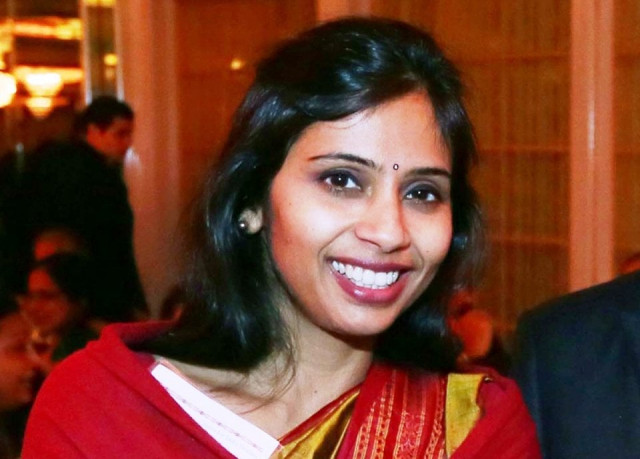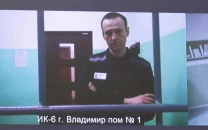'Perplexed' India says US probably still most important ally
Indian ambassador to US says there is a fair measure of anger about the way Devyani's case was handled.

Devyani Khobragade, India's deputy consul general, attends the India Studies Stony Brook University fundraiser event in Long Island, New York in this December 8, 2013 file photo. PHOTO: REUTERS
"I won't underplay this incident, I won't overplay this incident. I think we need to see it in perspective," S Jaishankar said in an interview. "I think we are in the midst of working this one out."
Jaishankar said India was "perplexed" by the decisions of US authorities to arrest and strip-search 39-year-old Devyani Khobragade, India's deputy consul in New York, after she was accused of visa fraud and underpaying her maid.
"There was a fair measure of anger about both the substance of the problem and the way it was handled," he said. "It was not just done publicly; frankly it was done appallingly."
But Jaishankar, who arrived in Washington in December after serving as Indian ambassador to China, played down the impact on the practical side of the relationship - emphasising that the two sides were still talking despite the postponement of two high-level US visits this month, including one by US Energy Secretary Ernest Moniz.
"Frankly, it's probably the most important relationship," he said. "We are not holding up business, or Pentagon dealings, or congressional dealings ... or science programs and saying, 'They don't get done until things get sorted out.'"
Jaishankar said, however, there was a need to resolve both the Khobragade case and the broader issue of the lesser level of diplomatic immunity accorded to Indian and other foreign consular staff in the United States compared with what Washington expects for its consular staff serving overseas.
'Larger issue'
Asked if India supported a demand from Khobragade's lawyer for the charges against her to be dropped, he said, "That is an issue in respect of this diplomat, but I think there is a larger issue of immunities and privileges."
"I think we need to sit down and work this one out."
Khobragade left the United States this month after a complex deal in which her diplomatic status was switched to the United Nations, affording her a greater degree of immunity from prosecution. But US authorities have so far refused to drop the charges against her.
Until the issue was resolved, Jaishankar said, the level of immunity enjoyed by US consular officials in India would be reduced to exactly the level granted in the United States.
"Since our consular officials have no immunity against felonies, US consular officials do not have immunity against serious crimes in India," he said.
India sharply curbed privileges offered to US diplomats in retaliation for Khobragade's treatment and asked Washington to withdraw a diplomat from New Delhi.
It also ordered the US Embassy to close a club for expatriate Americans in New Delhi, and a government source said it was also preparing steps against the American Embassy School, which it suspected may be employing some staff in violation of visa rules.
Jaishankar noted that many Asian nations valued the US presence in their region and that India was keeping a "watchful" eye on the debate over the US budget, which has seen US military leaders warning about the possible impact on Washington's ability to respond to global crises.
"I think as uncertainties mount, as volatility grows, I think people do value a strong American presence," Jaishankar said.
He noted efforts last year by then-US Deputy Defense Secretary Ashton Carter to deepen bilateral defense ties, including proposed co-development of the next version of the Javelin anti-tank missile now built by Raytheon Co and Lockheed Martin Corp.
Jaishankar called co-development of defense technologies with India "uncharted territory" and added it was a matter he had discussed in his initial interactions with the Pentagon since taking up his post. Still, he said such proposals would take time to develop.



















COMMENTS
Comments are moderated and generally will be posted if they are on-topic and not abusive.
For more information, please see our Comments FAQ